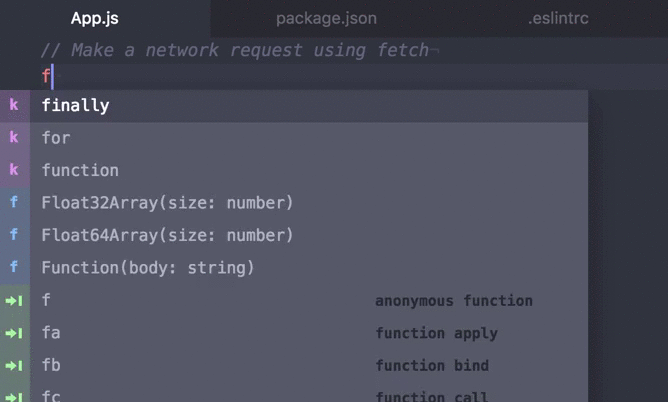- Allow configuration of target browser/s
- Use caniuse and @kangax's compat table for determining coverage
- Enable config using
.eslintrc -
browserslistintegration (usingpackage.json)
See the Road Map for more details
npm install --save-dev eslint-plugin-compatAdd "compat" to .eslintrc "plugins" section, add "browser": true to "env"
If you use typescript, see typescript-eslint-parser.
// .eslintrc
{
// ...
"env": {
"browser": true
},
"plugins": ["compat"],
"rules": {
// ...
"compat/compat": "error"
}
}Default
22: navigator.serviceWorker
^^^^^^^^^^^^^ `ServiceWorker` is not supported in IE 11, Edge 15
and Safari 8 😢
eslint-plugin-compat uses the browserslist configuration in package.json
See ai/browserslist for configuration. Here's some examples:
// Simple configuration (package.json)
{
// ...
"browserslist": ["last 1 versions", "not ie <= 8"],
}// Use development and production configurations (package.json)
{
// ...
"browserslist": {
"development": ["last 2 versions"],
"production": ["last 4 versions"]
}
}💡 You can also define browsers in a separate browserslist file
Toolchains for native platforms, like iOS and Android, have had API linting from the start. It's about time that the web had similar tooling.
This project was inspired by a two hour conversation I had with someone on the experience of web development and if it is terrible or not. The premise they argued was that x browser doesn't support y feature while z browser does. Eventually, I agreed with him on this and checked made this plugin to save web developers from having to memorize browser compatibility of specs.
For a minimal demo, see amilajack/eslint-plugin-compat-demo


